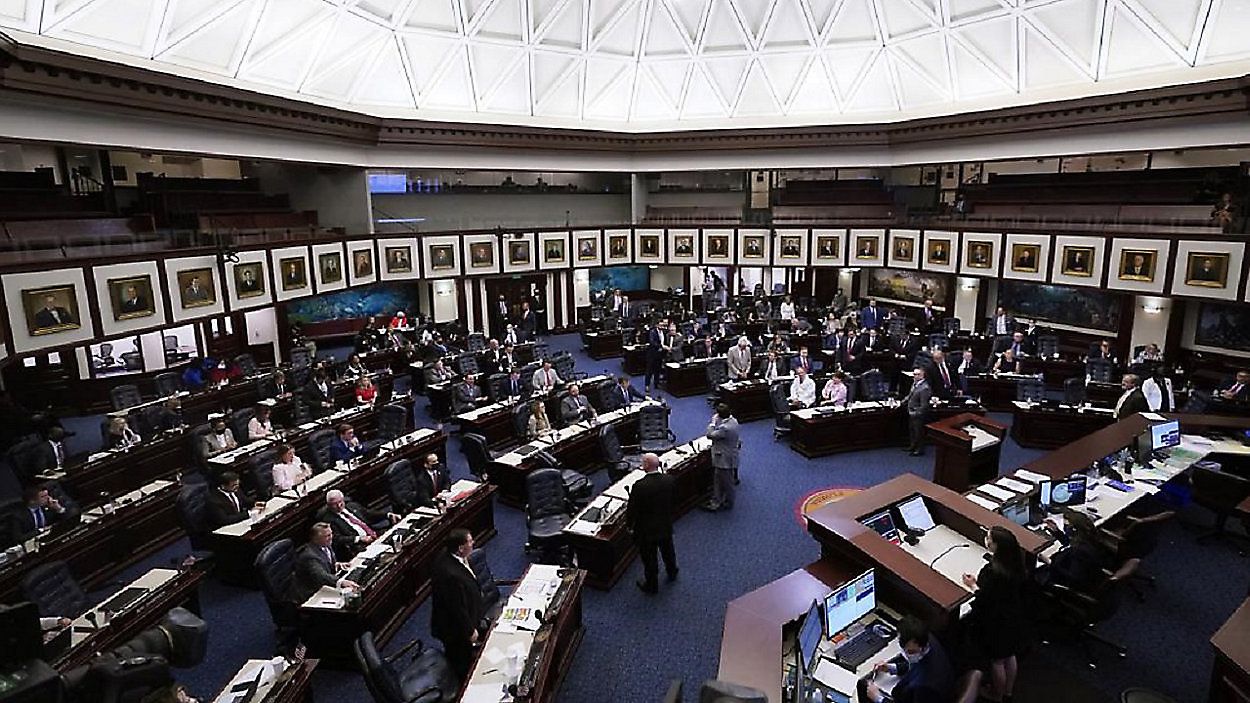TALLAHASSEE, Fla. — Florida lawmakers on Monday began considering ways to shore up the state’s struggling home insurance market in the year’s second special session devoted to the topic.
Lawmakers are considering legislation to help keep private insurers solvent by creating a $1 billion reinsurance fund, reducing litigation costs and compelling some customers to leave the state-created insurer of last resort and rejoin the private market. It also would force insurers to respond to claims more promptly and boost state oversight of insurers’ conduct following hurricanes.
What You Need To Know
- State lawmakers are in Tallahassee Monday for a special session on Florida's property insurance crisis
- Democrats are fighting against some measures in a proposed bill they say is anti-consumer, though some Republicans say Florida needs to create an environment that insurance companies want to stay in
- Under the bill, insurance companies would no longer have to pay back attorney's fees to those successful in lawsuits, agencies would have to approve or deny claims in 60 days and require Citizen's Insurance holders to get flood insurance
- Plus, some experts say insurance rates will likely increase
The Senate and House GOP bills are identical, meaning the measure should sail through the Republican-dominated Legislature.
As new bills are being introduced in the state House and Senate, many Democrats don't agree with the path forward from the Republican-dominated legislature.
Under a proposed bill — insurance companies would no longer have to pay back attorney's fees to homeowners who win a lawsuit.
Democrats argue it could prevent working class Americans from going after big insurance companies.
"It bails out insurance companies, while not really giving consumer protections," Democratic State Rep. Anna Eskamani said. "I definitely have concerns because the bill itself really seems to lean in the direction of the industry and not so much of the consumer."
Republicans, on the other hand, say the state needs to create a market that insurance companies want to stay in.
"If we cannot improve the industry, and then there will be no insurance companies for people to buy insurance from," Republican State Rep. Randy Fine said. "If we don't stabilize the market and improve it, there won't be insurance for people to buy."
The bill also requires insurance agencies to either pay or deny a claim within 60 days instead of the current 90.
It also requires all Citizen's Insurance holders to get flood insurance, something Democrats say is also detrimental to the consumer.
"You're asking them to pay for flood insurance without giving them any support to do that," Eskamani said.
Fine disagreed, saying, "I think we're also going to say to folks that if the state is going to subsidize your property insurance, you need to do your part and have flood insurance."
While the topic is being debated all week long, Democrats will likely try to pitch measures onto the bill.
One would be expanding the My State Florida Home Program to people living in Orlando. The program currently provides grants for hurricane mitigation to those living in coastal areas.
Some experts say insurance rates will likely increase
Will Florida Legislators deliver on promises to solve the state’s homeowners insurance crisis? That’s the question as a special session gets underway in Tallahassee on Monday to address Florida’s ballooning homeowners insurance rates.
Hurricane Ian is expected to spike rates again as insurance companies will face more expensive reinsurance, that’s the insurance that insurance companies carry to cover catastrophic events and losses.
Experts say regardless of any action from the legislature this week, it’s more likely insurance rates will go higher in the next year.
“It's not going to be a light switch to make rates go down, and I believe that rates will go up even more over the next 12 months while the changes I hope happen during next week's special session take effect,” said Lisa Miller, Florida’s former deputy insurance commissioner.
Florida makes up around 8% of property insurance claims filed nationwide, while those claims represent 80% of litigation nationwide, Miller said.
Those billions of dollars in legal fees is what has driven more than a dozen insurance companies out of the state and forced those that remain to raise rates an estimated 33% per year.
The rest of the country averages rate increases of 9% per year.
Legislators will need to attack the source of the problem this week, Miller said.
“The pain that consumers are feeling now in Florida is the most pain I have ever seen,” Miller said. “If we don't do something and transfer the pain to the other stakeholders, the lawyers, to some extent the insurance companies and others involved in this financial services environment. Our legislators and our governor is going to do everything they can to take the pain away from the consumer," she said.
Legislators have laid out a half-dozen areas to address during this week's special session.
Reducing litigation costs and insurance reform are two of the biggest.



